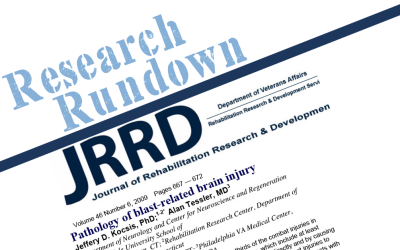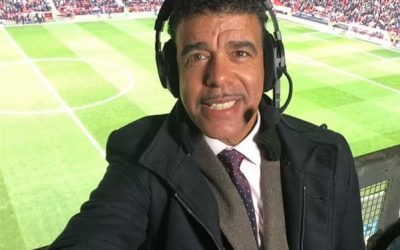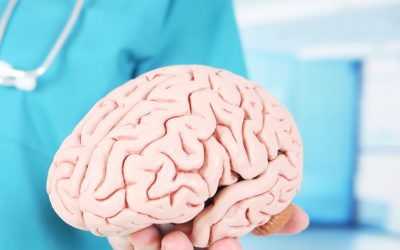Tom Fox's time on HBOT News has come to an end as we feature his final Research Rundown. Be sure to check out all of Tom's Research Rundowns to gain a comprehensive overview of Hyperbaric Oxygen Therapy for cerebral palsy, and brain injuries. In his final Research...
Danny Santulli has received 40 HBOT Treatments, Now Showing Emotion
In October 2022, we told you the story of Danny Santulli. A year earlier, in October 2021, Danny was the victim of a hazing at Phi Gamma Delta fraternity house, after he was required to drink a bottle of vodka and in turn received alcohol poisoning that left him...
Chris Kamara using HBOT to help brain battle apraxia of speech
Chris Kamara, the legendary former Sky Sports pundit, has revealed that he has apraxia of speech and is doing Hyperbaric Oxygen Therapy 2x a week to help increase blood flow to his brain, promoting healing and ease of symptoms for apraxia of speech. This can be...
Professional wrestler, Bryan Danielson speaks out about HBOT
Image credits: wrestletalk.comAmerican professional wrestler, Bryan Danielson, was recently quoted speaking up about his own brain health and journey with Hyperbaric Oxygen Therapy. “It’s interesting, this last one, he said, ‘After you start feeling better, we’re...
A Case Series of 39 United States Veterans with Mild Traumatic Brain Injury Treated with Hyperbaric Oxygen Therapy
Article cited by TreatNow.org Dr. Alison Bested, MD, and her team in Florida have published results of a case series that, once again, proves the power of Hyperbaric Oxygenation to stop suicidal ideation by healing brain wounds. 39 participants reported reduced pain,...
Oxygen and pressure to benefit brain health
A recent systematic review published in the journal Frontiers in Neurology discovered that hyperbaric oxygen therapy could be a very effective and safe therapy option for mild traumatic brain injuries (mTBI). The review was conducted by Dr. Paul G. Harch, a clinical...
Clinical Trial – The Role of Hyperbaric Oxygen and Neuropsychological Therapy in Cognitive Function Following Traumatic Brain Injury
Traumatic brain injury (TBI) caused by accidents is a very important public health problem in
Taiwan. There are many people with brain damage and cognitive dysfunction caused by traumatic
brain injury every year. Currently, there is no effective treatment for cognitive dysfunction
caused by traumatic brain injury. Evidence from clinical studies in recent years suggests
that hyperbaric oxygen therapy may be a treatment for repairing nerves after brain injury.
Many studies have shown that oxidative stress and inflammatory responses play an important
role in the pathogenesis of the central nervous system. In recent years, our research team
has shown that oxidative stress and inflammatory response are significantly associated with
the prognosis of patients with traumatic brain injury, cerebral hemorrhage, and stroke
patients. More and more evidences also show that oxidative stress and inflammatory response
play an important role in the neuropathological changes of mental cognitive sequelae after
traumatic brain injury. This injury may be gradual from the time of head trauma. This process
begins with the generation of oxidative stress and free radicals. When the cell repair and
free radical scavenging system can not effectively overcome the excessive production of free
radicals, an oxidative damage reaction will occur, causing a series of inflammatory cells and
cytokines to be activated. Studies have also shown that when inhibiting those free radicals
that produce oxidative stress, the neurological function and cognitive function of the head
after trauma can be significantly improved.
It is becoming widely acknowledged that the combined action of hyperoxia and hyperbaric
pressure leads to significant improvement in tissue oxygenation while targeting both
oxygenand pressure-sensitive genes, resulting in improved mitochondrial metabolism with
anti-apoptotic and anti-inflammatory effects. The investigators published an article this
year showing that hyperbaric oxygen therapy can improve the prognosis of patients with acute
stroke and increase endothelial progenitor cells in the systemic circulation.
The investigators plan to conduct this research project through hyperbaric oxygen therapy and
neuropsychological therapy, and using scientific tests and neurocognitive function
assessments. The investigators hope to answer the following questions: (1) Whether the
treatment of hyperbaric oxygen can improve oxidative stress and inflammatory response after
brain injury, and observe changes in biomarker concentration; (2) Whether hyperbaric oxygen
therapy and neuropsychological therapy can improve cognitive function after brain injury; and
(3) which biomarkers are factors that influence cognitive function prognosis.






